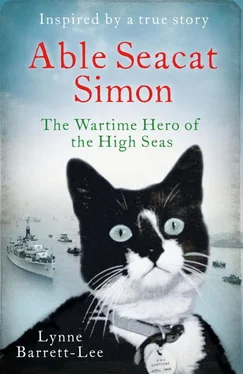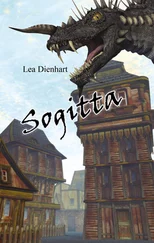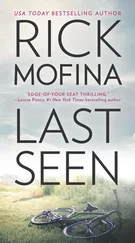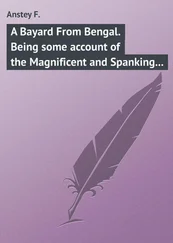Lynne Barrett-Lee
ABLE SEACAT SIMON
In memory of all who served aboard HMS Amethyst
And our own little Alfie
RIP
From the moment I was asked if I’d like to tell Simon’s story, two things became immediately clear. First, that I would say yes, without a moment’s consideration, and second, that it would be a labour of love.
After all, how could it not be? I love cats. I love writing. I especially love writing while in the company of my cats. So, to write as a cat? What could be nicer?
And what a joy it has turned out to be. But, unlike most of the novels I have written in the past, it also involved an element of responsibility. For all that this is fiction – a reimagining of a famous naval incident – it was vital that I remain true to history. Not so much the small, day-to-day things, because that would be impossible, but to the memories of both my doughty four-legged protagonist, and to those of the men with whom he served.
It goes without saying that I have done much research. I’ve read books and testimonials, pored over maps, charts and photographs, tried to familiarise myself with ‘jackspeak’ and naval lore and ship parts, and welcomed the word ‘corticene’ into my life. It’s obviously my hope that the book wears this lightly – with enough verisimilitude to capture the moment but sufficient innocence that a small, skinny, black and white kitten feels very much the narrator of the story.
However, what I’ve mostly been is humbled. Like Simon, an innocent in matters military and nautical, the more I immersed myself in the horror of the Yangtse Incident, the more awed I became. It’s already well-documented that the Amethyst ’s young crew returned as heroes, and that many were duly decorated, and rightly so.
But, as is often noted when it comes to momentous events, in order to fully appreciate how it felt you probably had to be there. And though I lay no claim to that – I was only there vicariously – my need to ‘be’ there, in the sense of getting to better know these brave seamen, has helped me understand what they went through on a much more personal level.
I hope I’ve done them justice (and that they’ll forgive me putting words in their mouths) because I could not respect or admire them more.
Stonecutters Island, Hong Kong, May 1948
I’d finally found a good route across the island. I used the same one every day now, and could have walked it in my sleep. Past the tamarinds, down the passage past the big house and the small house, across the road, mindful of traffic (which could strike you down and kill you), along the side of the big sheds where men clanged and banged a lot, then down past the cranes onto the docks.
The rain will come, kitten . That’s what my mother had always told me. It will come in spring, and it will teem, and it will fill the air and drench us. It will drip from your whiskers, and it will plop from your eyelashes, and it will get in your ears, you wait and see. It will come down so hard that it will dance before your eyes, kitten, and you’ll be wet through. And, trust me, you won’t like it one bit!
I had never seen rain then, not a single glistening drop of it. Only the dew that collected and sometimes fell in streams from the banyans, and the sea, which lapped gently on all sides of where we lived. So while I did trust my mother, and believed everything she told me, I couldn’t quite imagine what rain would feel like. As with so many things I’d experienced since I’d lost her, I was to discover there were still a lot of everyday things I didn’t know; not just the mysteries that lay beyond the harbour.
Today, though, I didn’t need to imagine. I was wet. I might even, I supposed, be wet through. I was heavy with wet; ‘wet’ clearly being a thing to be concerned about, just like strangers and traffic and snakes. A thing that streamed from my eyes, made my paws slip and slither, made my underbelly cold and damp and dirty. I could see it dancing in front of me, just as she had promised – kicking up from the lakes it had made of all the alleyways, jumping up and down on all the wall tops and roofs.
It was raining, so it must by now be spring. The time when my mother said the world would start changing. The time of warmth and something wonderful called ‘plenty’. Which was good, because there hadn’t been much plenty since I’d lost her. So far, I had only been able to catch just one or two mice. And that was then. Before hunger. Before spring. Before rain. And, weak from the pain that gnawed and clutched at my stomach, I didn’t know if I’d ever catch anything again.
I slipped through the spaces between two sets of fences, wondering when life might get better. If I didn’t manage to catch anything, then what would become of me? Which was why (I kept telling myself this, over and over) I’d had no choice but to go down to the docks and scavenge for scraps, despite all that my mother had told me – repeatedly – about how dangerous it was to be around humans.
The quayside was an assault on all my senses, as always. The big ships with funnels, the smaller ships with sails, the swarms of running people, the shouting and whistling, the sudden metallic shrieks and clangs, the gouts of steam and smoke, the cargo crates and nets swinging high above the ground. I felt my mother’s presence keenly as I approached my special spot: the place where she’d explained the rudiments of hunting and where I, always distracted by the wonders all around me, took too little notice of the skills she’d tried to impart.
My ears pricked and I tipped my nose a fraction higher, sniffing. Could I trust this one smell among the many, many odours? I slunk down into the space between my usual barrels with great care, and rounded the corner to where food sacks were often piled up – there to be loaded, my mother had said, onto the ships bound for the sea.
And then I stopped, transfixed. Because perhaps today was going to be a better day. For a few yards in front of me was a shrew. I knew it was a shrew from the shape of its snout. Look first , Mum would say to me. Don’t just leap in haste. Look. So I lowered myself down, not even caring about the wet now, just the tiniest fraction of the tip of my tail twitching, because that, my mum had told me, was what a tail was meant to do.
The shrew had so far been lucky. Something bigger – a rat or a fox or a cockatoo, even – had nibbled its way into the corner of a sack of grain. It was the bottom-most sack of a pile among many piles; piles that reached way higher than I was. The shrew was feeding, preoccupied, rooting around with its back to me, and, as far as I could tell, had no ready means of escape. The first surge of strength I’d felt since the rain had come coursed through me. I’d have that shrew, I just knew it, for my dinner.
Everything went wrong in an instant. So wrong that something else my mother had told me popped into my head. Was this going to be a day for misadventure? Her words came back to me, as they always did when things became scary: remember , she’d say, every day holds the capacity for adventure, kitten, but never forget that it holds the capacity for mis adventure too .
And it looked like misadventure might have found me. I’d been settling into position, just a moment from pouncing, when a sound and a strong smell hit my ears and nose together, and a voice – a deep human voice – broke the spell.
Читать дальше













